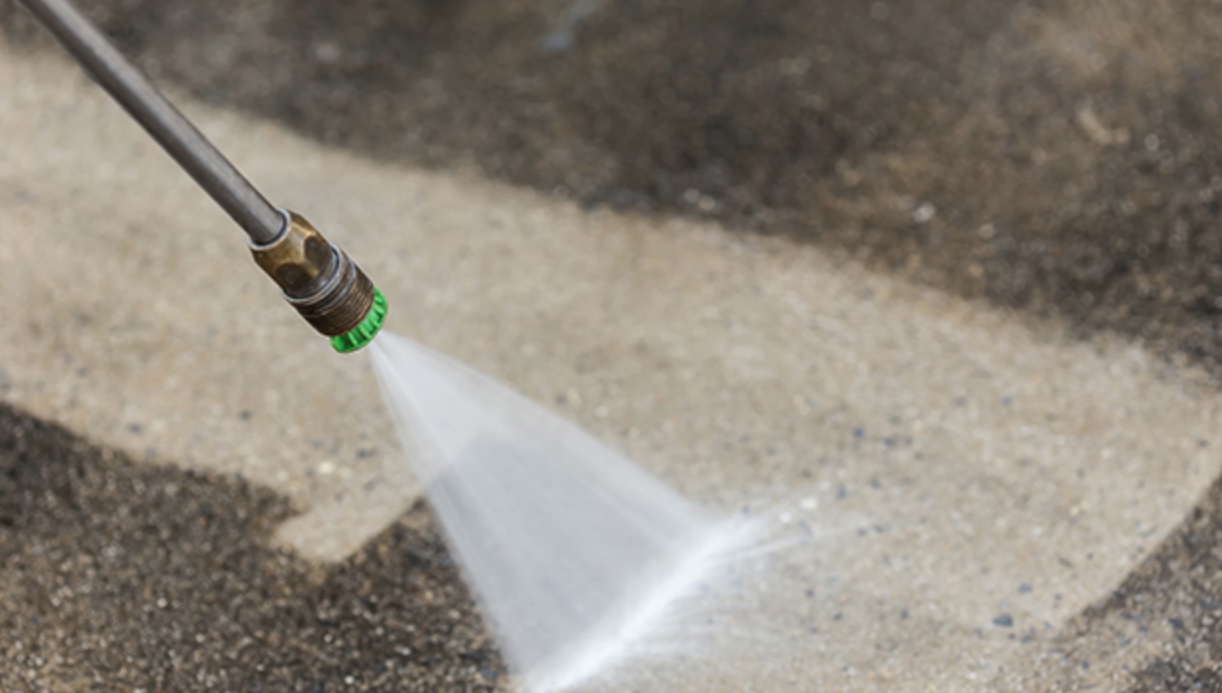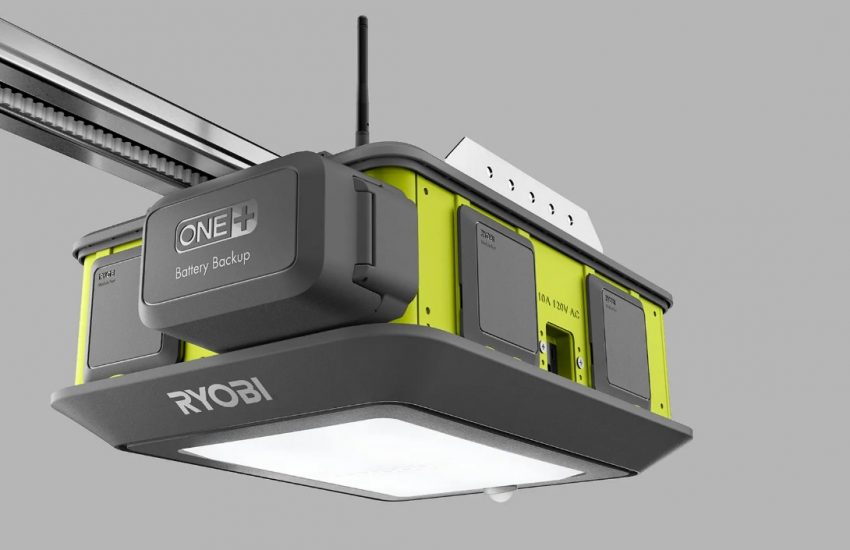How Long Does it Take to Pressure Wash a Driveway?
Your driveway is the first impression of your home. But unsealed concrete is subject to dirt, oil spills, lichen, mildew and mold growth, and bird droppings which can be unsightly. Pressure washing is one of the best and most efficient ways to wash and maintain your driveway and other outdoor structures.
Whether you have hired a professional cleaning crew or will do it yourself, you may be curious how long it takes to pressure wash your driveway.
There is no set answer to how long it will take to pressure wash your driveway. Instead, the duration is determined by several factors, making it difficult to provide an accurate estimate.
You will have to consider factors such as the size of your driveway, type of pressure washer, amount, and type of dirt you will tackle, among others. Read on to determine how these factors affect how long pressure washing will take and how to pressure wash your driveway.
How long does it take to pressure wash a driveway?
A typical residential driveway with a space of 20 and 24 feet wide that fits two cars can take about one hour to clean with an electric pressure washer. The same driveway would take about 30 to 45 minutes with a gas pressure washer.
However, that number is not set in stone. This is because the time it takes to pressure wash a driveway varies depending on several variables. Here’s how all these factors determine how long it will take you to pressure wash your driveway.
The average size of the driveway
Measure the size of your driveway in square feet because the larger your driveway is, the longer it will take you to pressure wash it. Also, if you’re considering hiring a professional, it’s important to note that they also charge per hour, so a bigger driveway means more time and more money.
Type of dirt of the driveway
The type of dirt and stains you need to get rid of could impact how much time it will take to pressure wash your driveway. Oil and grease stains are most stubborn and will take longer to remove. Organic stains like pet urine and bird droppings are acidic and can damage the surface and leave stubborn marks. Sand and mud are the easiest to clean. Algae stains that have set it can also take longer to lift.
Type of pressure washer unit
Pressure washer options are either gas or electric, and they have different power levels that may impact the cleaning duration. A gas pressure washer has more powerful water jets, which is excellent for heavy cleaning work. On the hand, electric pressure washers have less powerful jets, thus will take longer to clean a very dirty driveway. You may have to go over the driveway several times with an electric washer to get excellent results.
Additionally, the portability of the gas washer also allows you to do the work much faster. The electric pressure washer has a power cord, meaning you will have restricted movement.
Finally, an entry-level pressure washer hose is not that efficient at cleaning, so you may have to do several rounds to get desirable results. However, a full-powered rotary nozzle attachment will be much quicker to use to clean your driveway.
Material of the driveway
Materials used to construct your driveway – concrete or brick- determine the water pressure you should use when cleaning. Brick driveways are much harder to pressure wash since you have to care more about the edges and joints. Pressure washing a brick driveway also has an additional step or reseal of the joints between each block due to the effects of the high-pressure jets. As a result, these brick driveways will take more time to clean, even with a professional.
In contrast, unsealed concrete very porous and prone to dusting, therefore concrete driveways take less time to pressure wash. You simply pressure clean and leave it to air dry.
Also, a powerful pressure washer in the 2500-3200 psi range is faster and takes out strong stains. While a less powerful pressure washer of about 1200-1500 psi inevitably takes longer to remove tougher stains.
Experience
The more experience you have handling a pressure washer means you will be more efficient, and it will be less time-consuming. On the other hand, if you’re a beginner or less experienced, you will take longer trying to figure out how to pressure wash your driveway correctly.
What is the best way to pressure wash a driveway?
Pressure washing your driveway is an easy task, but you have to be careful not to blast your concrete or brick driveway and damage it. Follow our easy guide to help you pressure wash your driveway efficiently.
Things you need
- Appropriate pressure washer
- Garden hose
- Safety gear(safety goggles, gloves, earmuffs, and closed shoes)
- Pressure washer concrete detergent
Directions
- Remove everything around the driveway and remove the weeds growing over the driveway.
- Cover the plants around the driveway with tarps as the concrete detergent can harm the plants. Alternatively, you can use a biodegradable concrete detergent that is non-toxic to plants.
- Use a broom or leaf blower to clear loose dirt, debris, and rocks.
- Set up your pressure washer, wear your protective gear, and choose your desired attachment tool. We recommend using a surface cleaner attachment as it cleans faster and better because it disperses the water over a large area. A rotary nozzle works like a surface cleaner, but it’s best to use it over stubborn stains and grease.
- Pour your concrete detergent into your pressure washer detergent tank, then use the low-pressure soaping nozzle to pour the solution into the driveway and allow it to sit for five minutes.
- Now connect the garden hose to a 25-degree nozzle.
- If you have a concrete driveway, use the high-pressure setting and blast away all the stains, grime, mold, mildew, and other debris. However, use less pressure with a brick driveway to avoid destroying the mortar.
- Use the pressure again to rinse off the detergent, then let your driveway dry before parking your car.
How often should I pressure wash my driveway?
We recommend pressure washing your driveway every six months, either by yourself or by hiring a professional. But it’s also important to know the signs that your driveway needs pressure washing. Regular pressure washing helps prevent dirt and grime build-up, which cause cracking and pitting of your driveway. Unfortunately, this will lead to accruing additional repair expenses.
Why does power washing take so long?
Compared to manual washing, power washing is the fastest option to get a clean driveway. However, some factors will impact your power washing duration. Here are the circumstances that would make power washing time consuming;
- You have a large surface area to clean.
- The scale of grime, stains, and lichen on the surface is a lot. In addition, oil spills and organic stains are most difficult to remove, hence are likely to take longer to get rid of.
- An electric pressure washer takes longer to clean compared to a gas pressure washer.
- If you’re using a less powerful pressure washer with less than 2000 psi.
Is pressure washing a driveway illegal?
Technically, pressure washing a driveway is not illegal. However, according to EPA’s Clean Water Act, it is illegal in the USA and Canada to dispose of polluted runoff water into storm drains. This means you will be fined for pressure washing if only you release the runoff water, which contains toxic chemicals, oils, and greases, into storm sewer systems, polluting navigable and surface waters.
In some states and countries, you can divert the water to a porous surface such as a lawn or gravel parking lot or prevent the runoff water from leaving your property. It’s also important to check with local authorities to find out the best way to dispose of pressure-washing runoff water and avoid violating the Clean Water Act.
Conclusion
So the duration it takes to pressure wash your driveway depends on how big and dirty the driveway is, your experience in pressure cleaning, and how powerful your pressure washer is. Although you can’t change the size of your driveway, a powerful pressure washer can always clean your driveway faster and more effectively, no matter how dirty and grimy it is. We also recommend controlling your runoff water to avoid polluting the surface waters.


